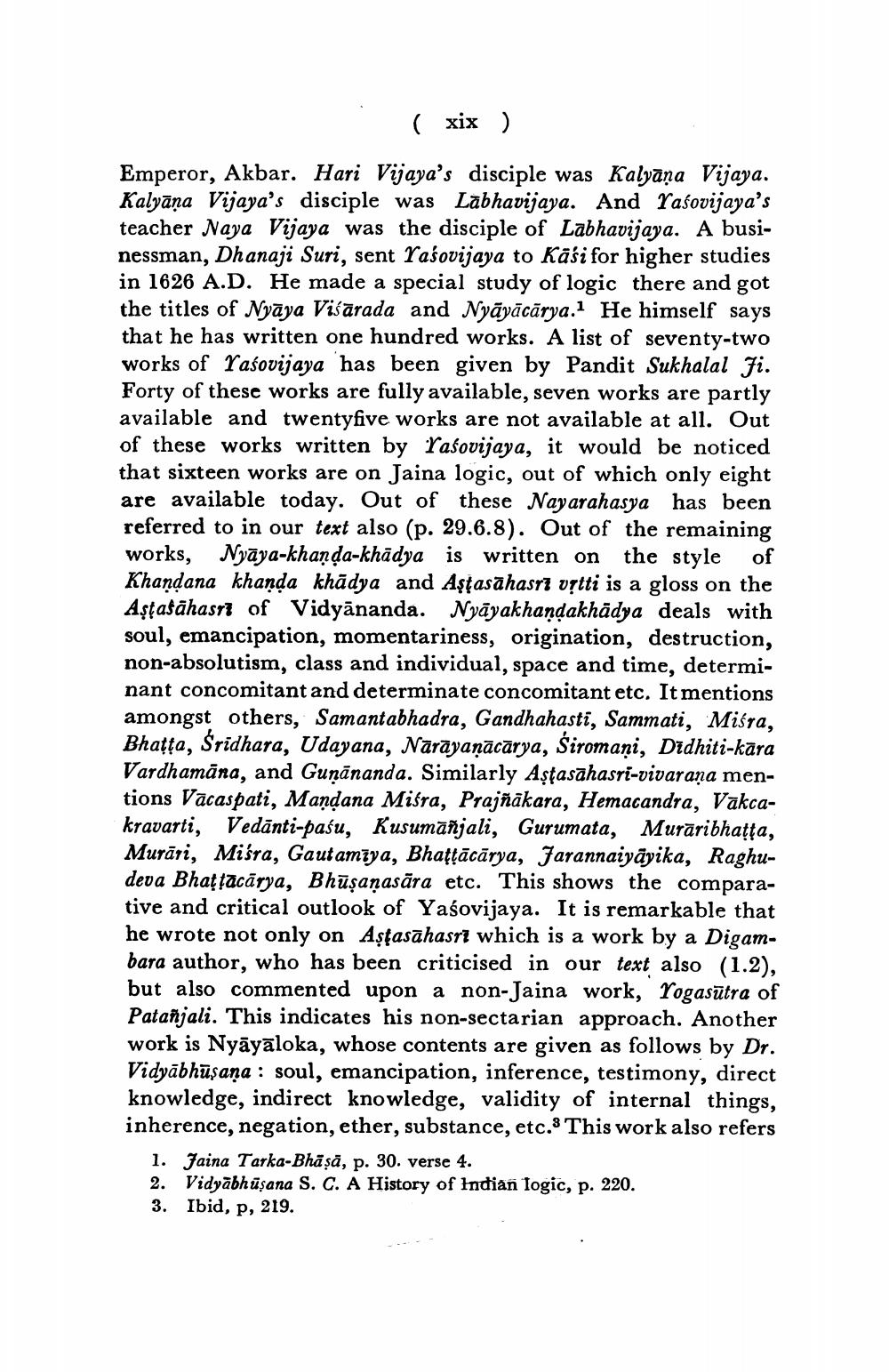________________
(
xix
)
Emperor, Akbar. Hari Vijaya's disciple was Kalyāņa Vijaya. Kalyāņa Vijaya's disciple was Labhavijaya. And Tasovijaya's teacher Naya Vijaya was the disciple of Labhavijaya. A businessman, Dhanaji Suri, sent Yasovijaya to Kāśi for higher studies in 1626 A.D. He made a special study of logic there and got the titles of Nyāya Visārada and Nyāyācārya." He himself says that he has written one hundred works. A list of seventy-two works of Yasovijaya has been given by Pandit Sukhalal Ji. Forty of these works are fully available, seven works are partly available and twentyfive works are not available at all. Out of these works written by raśovijaya, it would be noticed that sixteen works are on Jaina logic, out of which only eight are available today. Out of these Nayarahasya has been referred to in our text also (p. 29.6.8). Out of the remaining works, Nyāya-khanda-khādya is written on the style of Khandana khanda khādya and Aşļasāhasrı vịtti is a gloss on the Aşta$āhasrt of Vidyānanda. Nyāyakhandakhädya deals with soul, emancipation, momentariness, origination, destruction, non-absolutism, class and individual, space and time, determinant concomitant and determinate concomitant etc. It mentions amongst others, Samantabhadra, Gandhahasti, Sammati, Miśra, Bhatta, Sridhara, Udayana, Nārāyanācārya, Siromani, Didhiti-kāra Vardhamāna, and Gunānanda. Similarly Asfasāhasri-vivarana mentions Vacaspati, Mandana Miśra, Prajñākara, Hemacandra, Vakcakravarti, Vedānti-paśu, Kusumāñjali, Gurumata, Muräribhatta, Murāri, Miśra, Gaut amzya, Bhattācārya, Jarannaiyāyika, Raghudeva Bhat tācārya, Bhūşanasāra etc. This shows the comparative and critical outlook of Yasovijaya. It is remarkable that he wrote not only on Aşțasāhasri which is a work by a Digambara author, who has been criticised in our text also (1.2), but also commented upon a non-Jaina work, Yogasūtra of Patanjali. This indicates his non-sectarian approach. Another work is Nyāyāloka, whose contents are given as follows by Dr. Vidyābhūsaņa : soul, emancipation, inference, testimony, direct knowledge, indirect knowledge, validity of internal things, inherence, negation, ether, substance, etc. This work also refers
1. Jaina Tarka-Bhāṣā, p. 30. verse 4. 2. Vidyābhūşana S. C. A History of Indian logic, p. 220. 3. Ibid, p, 219.




